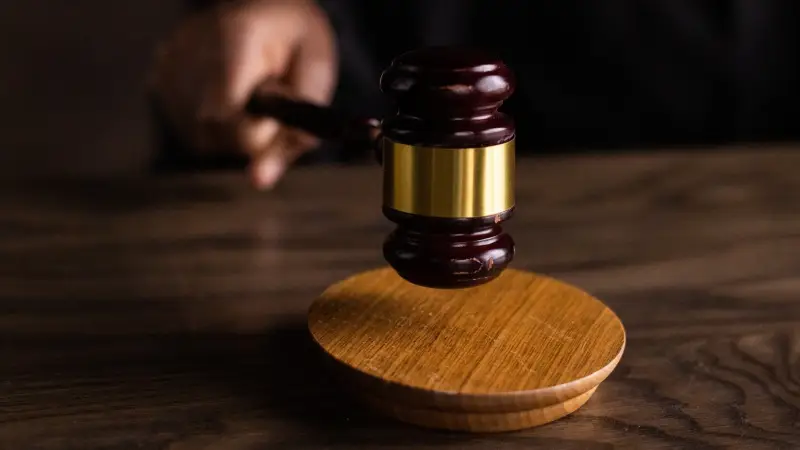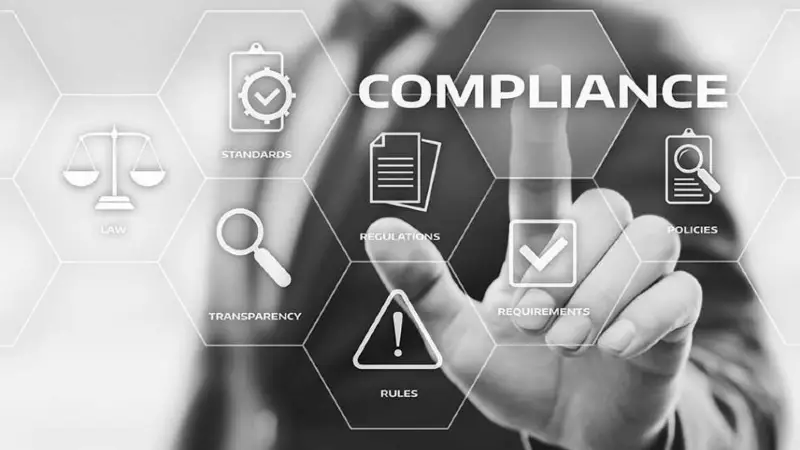Debt Collection Law Explained: Your Guide to Legal Debt Recovery in New Zealand

Debt collection law is a set of rules and regulations that govern the process of debt collection. These laws are in place to protect both debtors and creditors and to ensure that the debt collection process is fair and legal. It is important for businesses and individuals to understand the debt collection laws in their country to avoid any legal issues or repercussions.
Failure to adhere to these laws can result in legal action against the creditor or debt collector. In this article, we will explore the importance of debt collection law, debt collection lawyers, the debt collection rules and regulations, debt recovery laws, the debt collection statute of limitations, legal and illegal debt collection practices, and your rights when dealing with debt collection agencies.
Table of Contents
Mastering the Essential Debt Collection Law and Rules
Debt collection is a complex process that involves many legal regulations and rules. In New Zealand, debt collection is governed by a variety of laws and regulations, including the Fair Trading Act, the Credit Contracts and Consumer Finance Act, and the Privacy Act.
The Commerce Commission is the regulatory body responsible for ensuring that debt collection agencies and creditors comply with these Debt collection laws and regulations. This includes investigating complaints of unlawful practices, such as harassment or misrepresentation, and enforcing penalties against those who violate the rules.
There are also several common rules and guidelines that debt collectors must follow, such as:
- Providing accurate and complete information about the debt and the debtor
- Treating debtors with respect and dignity, and avoiding harassment or intimidation
- Only contacting debtors at reasonable times and places
- Not misrepresenting themselves or the debt they are collecting
- Providing debtors with information about their rights and options for resolving the debt
Understanding and following these rules is essential for debt collectors to operate legally and ethically. It is also important for debtors to know their rights and protections under the law, such as the right to dispute a debt or request a repayment plan.

Debt Collection Lawyer
Debt collection lawyers are legal professionals who specialize in helping individuals and businesses recover outstanding debts. These lawyers provide legal advice and representation to clients involved in debt collection cases.
The role of a debt collection lawyer in debt recovery may include:
- Assessing the legal validity of the debt and determining whether it is enforceable.
- Advising clients on the most effective debt collection strategies and legal options available.
- Drafting demand letters and other legal documents required for debt recovery.
- Negotiating with debtors to reach a settlement or payment plan.
- Representing clients in court proceedings related to debt collection.
It may be necessary to hire a debt collection lawyer when other attempts to recover the debt have failed, or when legal action is required to enforce the debt. In such cases, a debt collection lawyer can provide the necessary legal expertise and support to help clients recover their outstanding debts in accordance with debt collection laws and regulations.

Debt Recovery Laws
Debt recovery laws in New Zealand provide a legal framework for individuals and businesses to recover outstanding debts. If you are owed money, you have several legal options available to you. One of the most common options is to engage the services of a debt collection agency or lawyer to recover the debt on your behalf. However, in some cases, legal action may be necessary to recover the debt.
The laws governing debt recovery in New Zealand include the Credit Contracts and Consumer Finance Act and the Fair Trading Act, as well as various regulations set by the Ministry of Business, Innovation, and Employment (MBIE). These laws and regulations provide guidance on the legal requirements and limitations for debt recovery actions.
When considering legal action for debt recovery, it is important to weigh the potential benefits and risks. Legal action can be costly and time-consuming, and there is no guarantee that you will be successful in recovering the debt. However, if you are successful, you may be able to recover the full amount owed, as well as any interest, penalties, and legal fees.
It is recommended to seek legal advice before pursuing legal action for debt recovery to ensure that you are following the appropriate legal procedures and to evaluate the likelihood of success. An experienced debt collection lawyer can provide guidance on the best course of action based on the specifics of your situation.
Debt Collection Statute of Limitations
Debt collection statute of limitations refers to the time period within which a creditor can legally sue a debtor for an outstanding debt. In New Zealand, the statute of limitations is governed by the Limitation Act 2010, which outlines specific time limits for different types of debts.
The statute of limitations varies depending on the type of debt and can range from 6 years for most debts to 15 years for some specific debts. After the statute of limitations has expired, the creditor loses the right to sue the debtor for the debt. However, the debt still exists, and the debtor is still obligated to pay it.
It is important for both debtors and creditors to be aware of the statute of limitations for debts. Creditors should be aware of the time limits for different types of debts to ensure that they take legal action within the specified time frame. On the other hand, debtors should also be aware of the statute of limitations to avoid being taken advantage of by creditors who may try to sue for expired debts.
It is worth noting that the statute of limitations is not the same as the credit reporting time limit. Even though the creditor may not be able to sue for an expired debt, it may still remain on the debtor’s credit report for up to 5 years.
Overall, understanding the debt collection statute of limitations is important for both creditors and debtors to protect their legal rights and obligations in the debt recovery process.

Legal vs. Illegal Debt Collection
Debt collection can be a challenging and often frustrating process for both debtors and creditors. While creditors have the right to collect outstanding debts, they must do so within the bounds of the law. In this section, we’ll take a look at legal versus illegal debt collection practices and what you need to know as a debtor or creditor.
Definition of Legal and Illegal Debt Collection: Legal debt collection practices refer to the methods and techniques that debt collectors can use to collect outstanding debts while adhering to laws and regulations. These practices may include sending letters or making phone calls to debtors, negotiating repayment plans, and working with credit reporting agencies.
Illegal debt collection practices, on the other hand, are actions that violate the law, such as harassment, threats, or misrepresenting the amount owed or the consequences of not paying. For example, a debt collector cannot threaten to harm a debtor, use obscene language, or publish the debtor’s name or personal information in public.
Common Illegal Debt Collection Practices: There are several illegal debt collection practices that debtors should watch out for, including:
- Harassment: Debt collectors cannot use threats or intimidation to coerce debtors into paying their debts. This can include making frequent and harassing phone calls, contacting the debtor’s employer, or using abusive language.
- Misrepresentation: Debt collectors cannot misrepresent the amount owed, the consequences of not paying, or the identity of the debt collector. They also cannot pretend to be a government agency, attorney, or law enforcement official.
- Unfair practices: Debt collectors cannot use unfair practices to collect debts, such as adding unauthorized fees, contacting debtors at unreasonable hours, or continuing to contact debtors after being asked to stop.
Consequences of Illegal Debt Collection Practices:
Debt collectors who engage in illegal debt collection practices can face serious consequences, including legal action, fines, and loss of their debt collection license. Debtors who have been subjected to illegal debt collection practices can file a complaint with the Commerce Commission or take legal action against the debt collector.
Debt collection is an important part of the financial industry, but it must be done within the bounds of the law. Understanding legal versus illegal debt collection practices can help both debtors and creditors protect their rights and avoid legal trouble. If you are a debtor who has been subjected to illegal debt collection practices, or a creditor looking to collect outstanding debts, it’s essential to work with a reputable debt collection agency or lawyer who understands the law and can help you navigate the debt collection process legally and effectively.
Debt Collection Agencies Your Rights
When dealing with debt collection agencies, it’s important to know your rights as a consumer or business owner. Here are some key points to keep in mind:
Overview of Your Rights:
- Debt collectors must treat you fairly and with respect.
- They must clearly identify themselves and the company they represent.
- They cannot harass, threaten, or deceive you.
- They cannot contact you at inconvenient times or places.
- You have the right to dispute a debt and request validation.
- You have the right to request that they stop contacting you.
Filing a Complaint: If you believe that a debt collection agency has violated your rights, you can file a complaint with the Commerce Commission, which is responsible for enforcing the Fair Trading Act and the Credit Contracts and Consumer Finance Act.
Best Practices for Working with Debt Collection Agencies:
- Keep detailed records of all communications with the debt collector.
- Stay calm and professional when speaking with the debt collector.
- Ask for validation of the debt in writing.
- Negotiate a repayment plan that works for both parties.
- Seek legal advice if you feel unsure or overwhelmed.
laws and Regulations Governing the Process
The debt collection process is an essential aspect of any business, and it is critical to understand the laws and regulations governing the process. In this article, we have explored various aspects of debt collection law, including the role of debt collection lawyers, debt recovery laws, the debt collection statute of limitations, legal vs. illegal debt collection, and your rights when working with debt collection agencies.
By understanding these crucial aspects of debt collection law, businesses can better navigate the debt collection process and avoid legal issues. It is important to remember that debt collection agencies must adhere to specific rules and guidelines, and consumers have rights that must be respected.
Overall, it is essential to approach debt collection with care and attention to detail. By doing so, businesses can recover outstanding debts while maintaining their reputation and legal standing.

